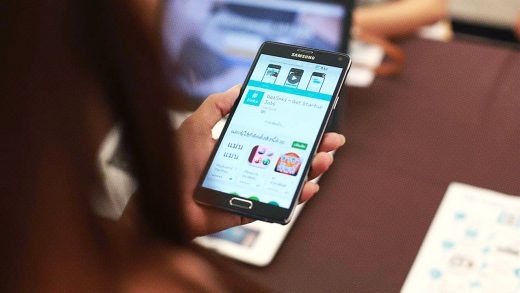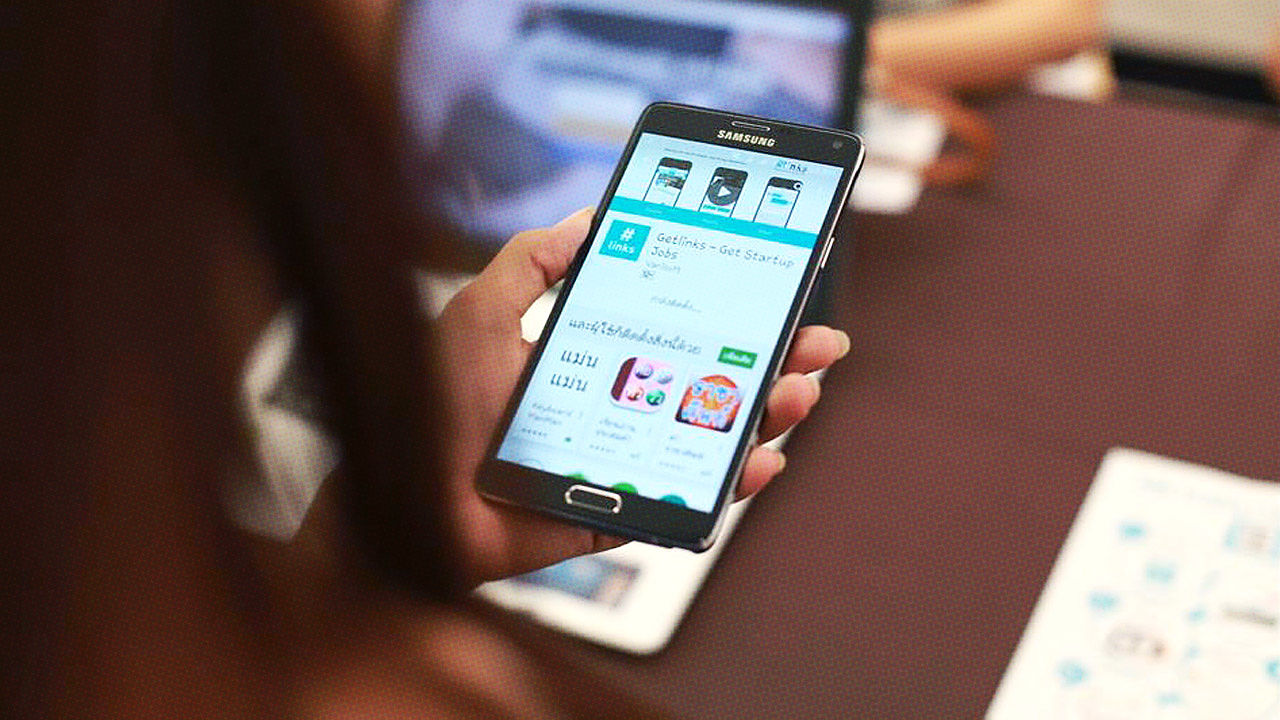Building The Tinder of Tech Talent For Southeast Asia
Ever since he was 14, Djoann Fal has been great at throwing parties, or so he says. It’s no surprise then, that his startup, GetLinks, an online network and jobs platform for tech talent in Southeast Asia, started out not as a business idea, but rather as a house party.
Today, the network, which has helped connect more than 20,000 techies in Thailand and is growing into Vietnam and Singapore, has helped create a space where the millions of people working in tech across Southeast Asia can meet and collaborate.
Fal sees the platform as a kind of Tinder for techies, helping to match people with jobs and connect people who have ideas with each other—a millennial alternative to LinkedIn. But like many his age, Fal, 24, has bigger dreams for the network. He believes the key to making great innovations come about is finding a way to connect people with the right skills, talents, and ideas.
GetLinks is a way for techies in the region to connect with each other to share ideas, but it’s also for tech companies looking to hire talent across Southeast Asia. While all users can create an individual profile, Fal and his team curate a pool of the top 10% of companies and top 5% of users who can match with one another to fill job openings.
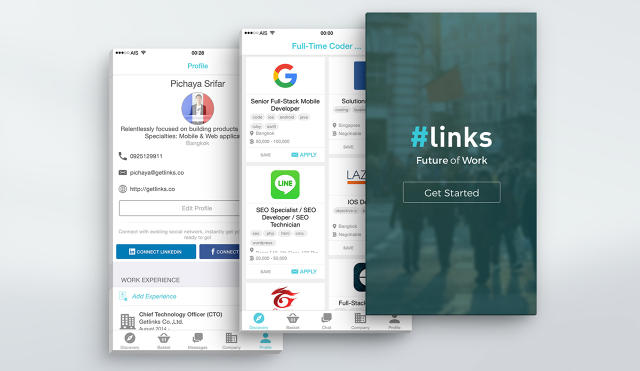
That ability to connect is the one skill Fal knows he’s great at. “I was always really good at connecting people, and it turns out they were doing cool projects together,” he says. But how to transform that skill into a vast social network that helps bring together startup founders and helps people find tech jobs across Southeast Asia?
Fal spoke with Fast Company about how he grew GetLinks into a thriving jobs network with partners including Google, Facebook, and Uber.
Bringing Together Like-Minded People
Born and raised in France, Fal initially came to Bangkok for a marketing job with e-commerce business Lazada—one he admits he mainly took to make his parents happy. But when he got to Bangkok in 2014 and saw there was a vibrant community of makers and hackers in the city, he decided he wanted to get to know them and started to attend startup events.
Fal invited some 50 friends and acquaintances working as programmers and entrepreneurs to a party at his place. The next time he held the party at a bar because his home was too small, then at a club because the bar was too small. By the fourth gathering, he’d learned there was a startup conference happening the same weekend as his party, and connected with the organizers, this time amassing a group of 600 people, all who were interested in tech in some way. “I hate when there are two different people who do the same thing who don’t talk with each other,” says Fal. “They could talk and make a greater impact.”
Making Strong Local Connections
Talking with people in the Southeast Asia tech space is how Fal has made all of his connections. “At the beginning, it was friends at the same level as me. Little by little, it was people above me,” says Fal. He would introduce programmers and entrepreneurs, convinced their combined tech knowledge and business savvy could help set the foundation for interesting tech startups. “I realized my friends who were entrepreneurs needed resources. They needed to connect with investors,” he says. “There were these categories of people in terms of skill—designers, corporate managers, media, investors—that could connect.” And so Fal set about making those connections.
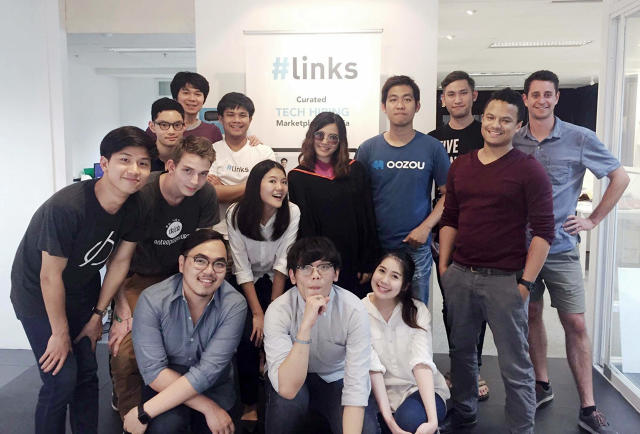
Through the events he hosted, Fal also met his cofounders, Pichaya Srifar and Polpat Songthamjitti. “I wanted to meet someone who could show me the real Thailand,” says Fal. “The language and cultural barrier is so huge. Different people approach you when you are with locals. It was good for a local to teach me what startup life was like here.” Not long after, Srifar became GetLinks’ chief technology officer, and Songthamjitti joined as the company’s chief marketing officer.
Building A Virtual Community Overnight
Great as he might be at throwing parties, Fal also knew that without local connections in Bangkok, there was only so far he could go in terms of building a network. By making local connections, he was able to organize a job fest in Bangkok in 2015, bringing in 3,500 people and 70 companies that each paid for booth space, including big names like Facebook, Google, and Uber.
While Fal saw the potential for in-person networking through live events, it was his Srifar who had the idea and ability to translate that in-person experience into an online network. Working together to build that platform, the GetLinks app officially came out in April 2015, around the same time as the startup job fest as a way to built its user base.
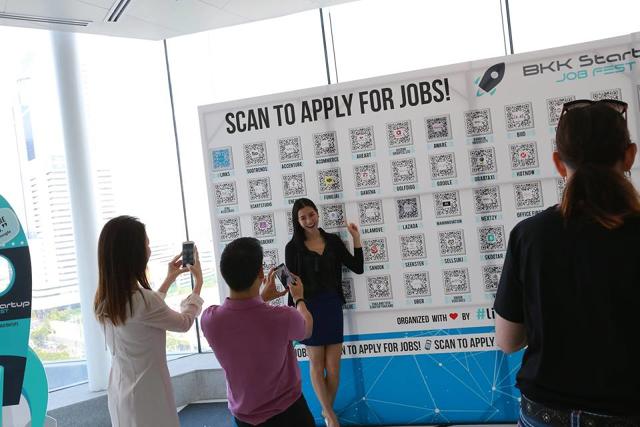
To get into the fair, participants needed to download the GetLinks app, and companies had to post and pay for five job listings on the platform. Almost overnight, the network had transformed into a virtual space. “Creating the online platform went hand-in-hand with the live event,” says Fal.
When Opportunities Come Out of Failures
Since launching in 2015, GetLinks has expanded into Vietnam and most recently, Singapore. And Fal has gone from introducing friends to actually connecting people from the Thai government with Vietnamese government officials. But while GetLink’s rapid growth seems like a success story, it has not been without its challenges. Over the course of its first six months, Fal had pitched and been rejected by 50 investors.
Once he’d run out of money, with only $50 left to his name, he decided to launch a Kickstarter campaign, hoping to raise €30,000 from the many friends and connections he’d amassed over the years. Instead he raised a measly $700 and had to borrow money from his girlfriend.
But while GetLinks’ Kickstarter was a flop, it also was the source of their first investor and fourth cofounder, Keenan Kwok. In the hopes of making himself as accessible as possible, Fal had listed his email and personal phone number on the Kickstarter campaign page. When he got a message from someone interested in meeting him for coffee, Fal figured he might as well. At a nearby Starbucks he met Kwok, who had first run into Fal at one of his parties. Kwok saw the potential in GetLinks and wrote Fal a check for the company’s first investment.
A Forward-Looking Approach
While he didn’t envision building a social platform when he hosted that first party at his place two years ago, Fal has since seen the power that translating individual connections on a broader scale can have. Of the people he’s helped connect through GetLinks, many are working together to create tech solutions to global challenges. One guy, says Fal, is hosting a hackathon to create cheap solutions to building affordable tractors in northern Thailand, for example. Others are building technology to help address the shortage of clean water in communities around the world.
In that respect, GetLinks aspires to be more than just a LinkedIn for the millennial crowd. “Having a team of one engineer, one designer, and one marketer, you can change the world,” says Fal. It’s these teams he hopes GetLinks can help create. “If I can connect 5% of the millennials in Asia this way—that’s 25 million people who can change the world.”
Fast Company , Read Full Story
(12)

